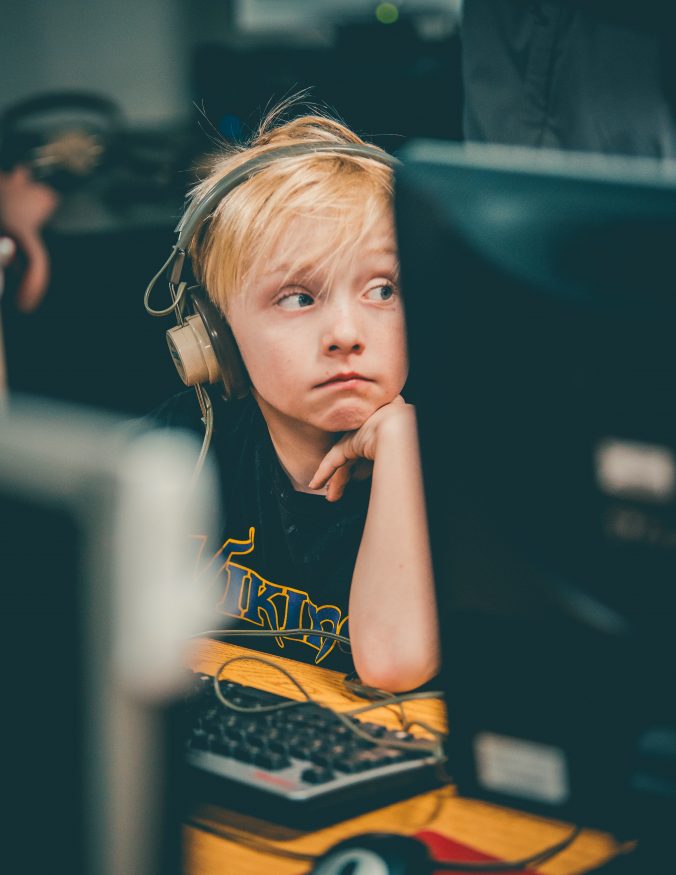In my last post I suggested that incooperating digital technology into early years education is not a priority in BC. Is there evidence out there to support my assumption?
According to the government of BC website: “Digital literacy is an important skill to have in today’s technology based world.” The BC’s Digital Literacy Framework, first published in 2015, describes in detail what children age 5- 18 should be able to do, understand, and critically think about with regard to digital technology.
The framework outlines six main characteristics of digital literacy: research and information literacy, critical thinking, problem solving and decision making, creativity and innovation, digital citizenship, communication and collaboration, and technology operations and concepts. It also outlines some ways technology and digital resources might be incooperated into learning experiences for children age 5-8:
- Illustrate and communicate original ideas and stories using digital tools and media-rich resources. (C, T, CC, CI)
- Engage in learning activities with learners from multiple cultures through e-mail and other electronic means. (C, CC, TOC)
- Independently apply digital tools and resources to address a variety of tasks and problems. (T, CPD, TOC)
- Demonstrate the ability to navigate in virtual environments such as electronic books, simulation software, and Web sites. (TOC)
Despite the clear and expansive nature of the Digital Literacy Framework, BC does not specifically include digital technology in its Early Years curriculums.
Technology is not explicitly included within BC’s updated Early Learning Framwork Principles, though the principles do leave room for interpretation and the Framework itself promotes the incorporation of many modes for through which children can express and inquire. However, the Framework does include digital technology in Section Three: Living and Learning Together under the heading Communication and Literacies. Here the Framework highlights the fact that digital technology is part of most people’s everyday lives, that it can support and promote creative inquiry, and that there are complicated concerns surrounding its inclusion in the childhood experience.
And yet, digital technology appears to reside under Communication and Literacies only as a point for conversation and as a mode for communication. There are no specific examples provided in the Framework for how digital technology might be incooperated in Early Learning environments (besides its current primary use in Pedigogal Narration). Instead, it is suggested that educators take time to reflect on the potential creative and negative aspects of technology. It is clear that Early Childhood Educators and the BC Early Learning Framework are still pondering over whether digital technology should actually be included in Early Learning Environments.
BC’s New Curriculum defines technologies as tools that extend human capabilities and includes technology under the heading Applied Design, Skills, and Technologies K-7“. However, the term “computational thinking” becomes included under the heading “Applied Design, Skills, and Technologies” starting with 6 and 7. Computational thinking appears to be quite extensive and includes an awareness of coding, computer hardware and software (including troubleshooting), Internet safety, digital self-image, citizenship etc. By including specific learning outcomes regarding digital technology for the later grades, the BC Curriculum elucidates the expectation that British Columbian children be digitally literate, while at the same time it suggests that digital technology remain absent in Early Childhood.
It is clear, as I assume is the case with many of us graduate students, that British Columbia isn’t quite sure where it stands on the idea of digital technology in Early Learning. Such is not surprising as we currently live in a time that allows us access to a endless wealth of information, which generally leads us into an endless cavern of contradictions.
Until next time,
EJ
References
Ministry of Education (2015). BC’s new curriculum. Victoria, BC. Retrieved from https://curriculum.gov.bc.ca
Ministry of Education (2019). British Columbia early learning framework. Victoria, B.C. Retrieved from https://www2.gov.bc.ca/gov/content/education-training/early-learning/teach/early-learning-framework
Ministry of Education (2015). Digital literacy framework. Victoria, BC. Retrieved from https://www2.gov.bc.ca/gov/content/education-training/k-12/teach/teaching-tools/digital-literacy?keyword=Digital&keyword=literacy&keyword=framework


Community